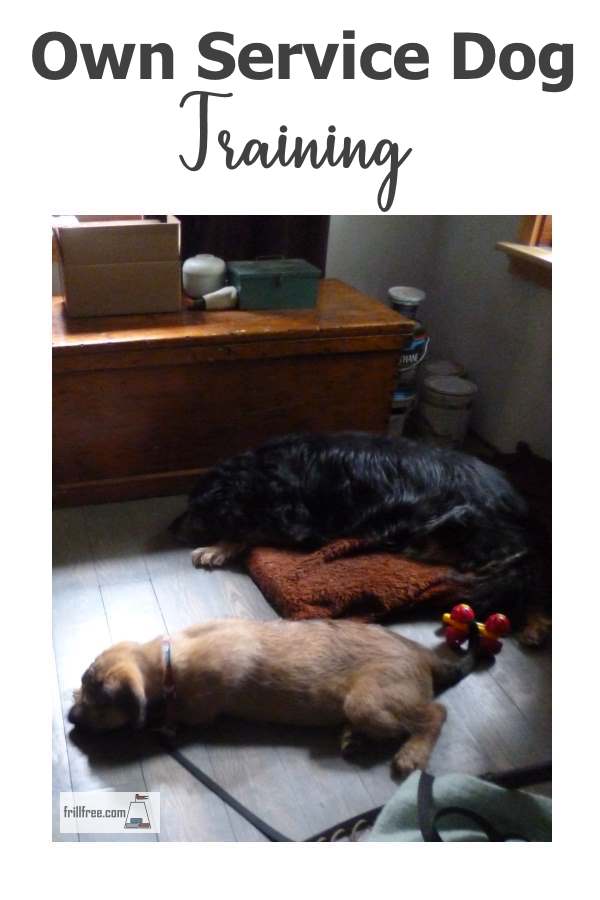- Homesteading
- Service Dog DIY
- Own Service Dog Training
Own Service Dog Training
Make Your Custom Trained Service Dog
Your needs in a service dog will be unique. No other person will require exactly what you need your dog to do for you.
So it makes total sense to train your own service dog and get exactly what you need.
If you have another dog available to help, let them teach your new dog how to relax on a mat, as they mimic each other.
That frees you up to do the majority of other training of skills they'll need to help you with your everyday challenges.
But no matter what else you train your dog to do, bite inhibition is crucial. For any dog, pet or service. The joy goes right out the window when a puppy or adult dog bites someone.
See this quick video showing our trainer Robin teaching Sable how to resist the urge to bite hands - I've been using this ever since to teach her all kinds of other things too, like to watch me, sit, down and even come.
It's important not to completely squelch the urge to bite, because that doesn't teach them to just bite gently.
The goal is to teach them to diminish their force, until they may just be mouthing or licking. Then later as an adult, they will know not to bite hard if the situation arises.
Find out more tips on teaching your puppy not to bite.
One crucially important skill your puppy will need is to know how to potty outside, not inside on the rug. There are ways to do this so it's not aversive, and starts a life long good habit. See how to potty train your puppy.
Lots of skills start out as fun games, like retrieving things. Balls, frisbees or just a stick can be the basis of learning how to go and get whatever the trainer wants.
Having a well trained service dog who can pick up dropped items, get your medications or a drink from the fridge, or even summon another person to help if you fall can be invaluable.
Tug, using a rope, or two identical tug toys, is a great way to teach politeness, giving up the object into hands or onto the lap of the trainer.
Mike is show in the video below encouraging Sable to bring back a tossed ball to the general vicinity of the handler, giving it up takes time to learn!
Keep working in tiny increments, especially things like polite walking and learning how not to bite.
Patience is crucial when training any dog, and even more if it's to be a service dog.
Any kind of aversive training can set you back, if it makes the dog shy, fearful, or hesitant. You want an eager learner who isn't afraid to make a mistake, and doesn't fear punishment or harsh corrections.
It's a new day, and a new dog. Ash is my new service dog candidate, currently 11 months old. The breeder delivered him from Calgary, Alberta, when he was 12 weeks old.
She kept him a few weeks longer so he would get those precious days with his family of origin, learning some doggy manners. It's made all the difference. If you have the chance, and a sympathetic breeder, let them keep the puppy a bit longer.
Stay tuned for more about Ash, service dog in training, as we move into adulthood from a tumultuous adolescence.















